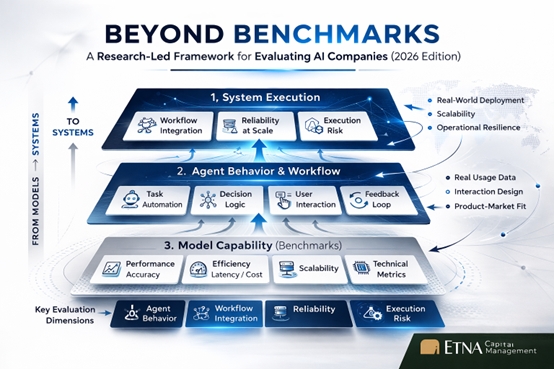By Shahid Hussain
The recent state visit of UAE President Sheikh Mohamed bin Zayed Al Nahyan to South Korea is critical in the UAE’s quest for a technologically advanced future. This visit, punctuated by signing a Comprehensive Economic Partnership Agreement (CEPA) and numerous other bilateral accords, showcases the deepening ties between the two nations. It highlights a shared vision that transcends traditional energy partnerships, embracing advanced technologies, artificial intelligence (AI) and sustainable development.
Historically renowned for its abundant oil reserves, the UAE is on a deliberate path to diversify its economy. This strategic shift is driven by recognizing that a sustainable future necessitates reducing dependency on fossil fuels. South Korea, a global technology and industrial innovation leader, emerges as an ideal partner in this transformative journey. The UAE’s strategic engagement with South Korea signifies more than economic cooperation; it is a testament to a shared ambition to foster technological advancement and financial resilience.
The UAE’s diversification efforts are evident in its ambitious economic policies and international partnerships. The CEPA’s relationship with South Korea is a cornerstone of this strategy, which aims to bolster non-oil trade and investment. This agreement will dismantle trade barriers, enhance market access, and foster private-sector collaboration. Key sectors such as energy, healthcare, advanced manufacturing, and intelligent agriculture are set to benefit significantly from this partnership.
South Korea’s expertise will catalyze the UAE’s technological progress. For instance, the UAE’s billion-dollar investment in South Korean companies and vice versa reflects a mutual commitment to fostering innovation. The UAE has already reaped substantial benefits from its partnership with South Korea, exemplified by the $20 billion Barakah nuclear power plant, highlighting the potential for future collaborative ventures in nuclear energy.
The defense sector represents another pivotal area of cooperation. South Korea’s ambition to ascend as one of the world’s leading arms exporters aligns with the UAE’s defense modernization efforts. Recent agreements between the two countries include significant investments in defense technology and infrastructure, such as constructing 10 liquefied natural gas (LNG) carriers and potential collaboration on nuclear power plants in third countries.
This defense collaboration transcends transactional interactions; it signifies a deeper strategic alignment. South Korea’s advanced military technologies and the UAE’s strategic geopolitical positioning can substantially enhance regional security and stability. Furthermore, the UAE’s investment in South Korean defense companies has positively impacted the South Korean stock market, reflecting market confidence in the partnership’s potential.
One of the most exciting facets of the UAE-South Korea partnership is their shared focus on AI and future technologies. AI is a critical component of the UAE’s Vision 2030, which aspires to transform the nation into a global leader in technology and innovation. South Korea’s advancements in AI, robotics and intelligent technologies are instrumental in realizing this vision.
During the state visit, the two countries signed agreements that set the stage for joint research and development in AI and other advanced technologies. These initiatives will enhance both nations’ capabilities in the healthcare, smart city and cybersecurity sectors. The UAE’s strategic investments in AI are also poised to spur job creation, economic growth, and enhanced public services, thereby improving the quality of life for its citizens.
Beyond economic and technological collaboration, the UAE and South Korea nurture cultural and educational exchanges. These initiatives are crucial for building mutual understanding and long-term cooperation. The UAE’s focus on education and innovation is reflected in its investments in South Korean educational institutions and efforts to attract South Korean expertise to UAE-based projects.
Cultural exchange programs and collaborative research initiatives are set to enrich both nations’ cultural landscapes and academic environments. By fostering a knowledge-based economy, the UAE is positioning itself as a hub for innovation and intellectual growth, drawing from South Korea’s rich experience in these fields.
The UAE-South Korea partnership exemplifies international cooperation in the 21st century. It demonstrates how countries can leverage their unique strengths to achieve common goals and address global challenges. As the world grapples with unprecedented technological, economic, and environmental changes, such partnerships are essential for sustainable development.
The agreements signed during Sheikh Mohamed’s visit to South Korea reflect a forward-thinking approach prioritizing technological advancement, economic diversification, and strategic security. The UAE is charting a course for a prosperous and sustainable future by embracing innovation and fostering international collaboration.
In conclusion, the UAE-South Korea vision for a technologically advanced future is not merely a bilateral aspiration but a blueprint for global progress. As these two nations deepen their partnership, they set a precedent for countries to work together, harnessing the power of technology and innovation to create a better world. This visionary collaboration promises to transform their economies and contribute to the global technological and economic landscape.
Shahid Hussain is the founder and CEO of UAE-based consulting firm Green Proposition and writes about matters that shape trade and business in the global market.








